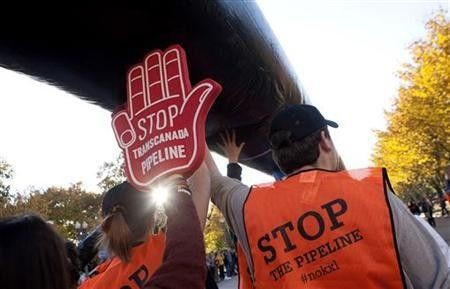Keystone XL Oil Pipeline Not Finished Yet, Company Plans to Reapply for Permit

It's not over yet for the Keystone XL oil pipeline.
TransCanada officials announced yesterday afternoon they anticipated President Barack Obama's Keystone XL Pipeline permit rejection, and added the company intends to reapply.
Russ Girling, TransCanada's president and chief executive officer, said he suspects the company can maintain its already projected construction schedule and have the several thousand mile Keystone XL oil pipeline operational by late 2014.
President Obama on Wednesday, in a controversial move, rejected the Canadian company's permit on the grounds the State Department was imposed an artificial deadline by Republicans to pronounce the project in the national interest. The Obama administration and the State Department asserted they did not have enough time to review the proposal.
Opponents of the decision, the American Petroleum Institute among the most vocal, claim Obama caved in to political pressure from environmentalists and had more than enough knowledge on the project because the pipeline underwent several environmental reviews since 2008.
Until this pipeline is constructed, the U.S. will continue to import millions of barrels of conflict oil from the Middle East and Venezuela and other foreign countries who do not share democratic values Canadians and Americans are privileged to have, Girling said. Thousands of jobs continue to hang in the balance if this project does not go forward. This project is too important to the U.S. economy, the Canadian economy and the national interest of the United States for it not to proceed.
Nebraska Governor, Dave Heineman mirrored his disappointment in Obama's decision to reject the Keystone XL permit, calling it a disruptive move. Nebraska has been on the front lines of the pipeline debate because of its environmentally sensitive Sandhills, a region of the state where aquifer levels are close to the surface and lie under a layer of permeable sand.
Opponents of the pipeline argued if the pipeline failed in that region, the aquifer could be irreparably damaged.
Approval of the pipeline would have allowed TransCanada to move forward with the project while Nebraska finished the review process of a new segment of the route around the Sandhills, Heineman said. The President's decision is disruptive and we are now going to review in detail what this means for Nebraska.
© Copyright IBTimes 2025. All rights reserved.





















